Introduction
The coronavirus (COVID-19) pandemic has gone on far too long. At the same time, a tremendous amount of misinformation has spread in the vegan community that has wrongly condemned animal agriculture and consumption to the utmost extreme. Many vegans believe COVID-19 came from animal agriculture and consumption.
Yes, animal agriculture and consumption are messed up, but it is entirely irrational to consider these things as the origin of this pandemic. Since we are dealing with a lot of misfortune, here are the 13 reasons COVID-19 isn’t related to animal agriculture and consumption.
Please note that the point of this blog post is to share my views on this vegan debate on if COVID-19 originates from animal agriculture and consumption or not. After you read my perspective on this issue, let me know what you think of this debate by commenting below.
- The earlier human strands of the coronavirus were entirely unrelated to animal agriculture and consumption.
- Just because a disease is zoonotic, that does not mean it is caused by animal consumption and agriculture.
- Many people who came to believe in this interconnection between COVID-19 and animal consumption and agriculture were influenced to become vegan by Western farming practices, not China’s (ethnocentrism).
- Name one previous pandemic that was caused by animal consumption and agriculture. (History repeats itself.)
- Associating COVID-19 and animal consumption is mere propaganda instead of factual.
- Hate-ridden logic is too biased to be the truth.
- There is no evidence proving that COVID-19 spreads through any food consumption, let alone animal consumption.
- This is neither the first nor the last time the vegan community has asserted such outlandish things without evidence supporting its accusations against animal consumption.
- People tend to want a reason behind everything, and this logic gets clouded by their perception (confirmation bias).
- COVID-19 is airborne, not foodborne.
- Animal agriculture and wild game are entirely different.
- This pandemic could be a coincidence (scapegoat).
- Just because there are outbreaks of COVID-19 in meat packing plants, that does not mean animal agriculture and consumption are the origins of COVID-19.
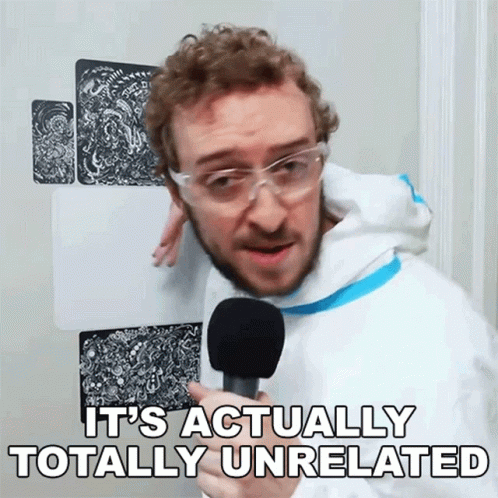
1. The earlier human strands of the coronavirus were entirely unrelated to animal agriculture and consumption.
COVID-19 is the seventh strain of the coronavirus that humans contracted. By now, we should have a reasonably good idea of coronaviruses and where they come from, but the world has so much to learn. Regarding COVID-19’s origins, there have been debates on which species passed COVID-19 to Homo sapiens. Some of the suspected species that supposedly have passed strains of the coronavirus to humans include but are not limited to bats, civets, camels, and pangolins. Since I’m not a zoologist, please find more information about these species.
The question I have to the people who believe animal agriculture and consumption caused COVID-19 is which species used in farming practices, technically referred to as livestock in agriculture, was the host that transmitted COVID-19 to humans. The disease’s nonhuman host is a huge part of this virus’s origin, so that is why there needs to be definitive logic and evidence showing COVID-19 came from a farm animal host to make any logic about this claim (COVID-19 came from animal agriculture and consumption.) verifiable.
It is true that some livestock, like poultry, have had coronaviruses. Still, there is no evidence proving that livestock can be infected with this specific strain of coronavirus (COVID-19), let alone be COVID-19 hosts/carriers that later spread it to humans. That is because many diseases are species-specific. In other words, even though civets, camels, and poultry can have coronavirus, they are different coronavirus strains.
In short, without any legitimate proof from knowledgeable sources demonstrating that farm animals can have and then pass COVID-19 to humans, this COVID-19 origin story of it coming from animal agriculture and consumption is faulty.
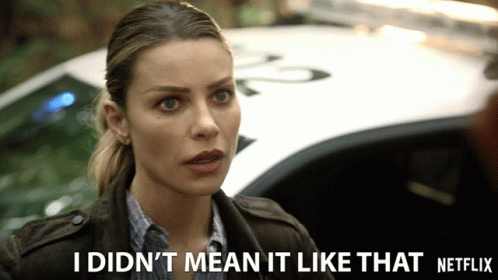
2. Just because a disease is zoonotic, that does not mean it is caused by animal consumption and agriculture.
Zoonotic is a term that describes diseases that came from nonhumans, meaning species give other species diseases and vice versa due to their coexistence. Yes, animal welfare, in addition to animal agriculture and consumption, contributes to the occurrence of zoonotic diseases, but that is not the only reason why zoonotic diseases exist.
Popular Science claims that an entirely vegan world would reduce the number of zoonotic diseases humans would get. Still, it would never eliminate zoonotic diseases due to the coexistence of humans and nonhumans worldwide. That is because not all zoonotic diseases come from animal consumption.
Similarly, USA Today debunks the association of COVID-19 with animal agriculture and consumption because the major vegan influencers’ logic somewhat contradicts the evidence that its reporters found. They agree with Popular Science that stopping animal consumption and agriculture would lessen but never eliminate zoonotic diseases.
The point is zoonotic diseases are not wholly synonymous with animal agriculture, consumption, and welfare because zoonotic diseases would still exist even if the world went completely vegan and consequently stopped using animals for human gain.
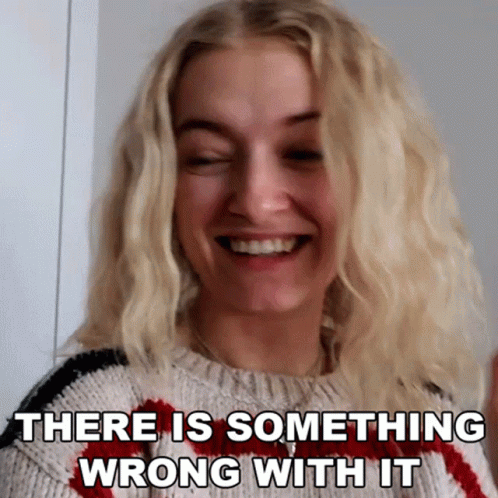
3. Many people who came to believe in this interconnection between COVID-19 and animal consumption and agriculture were influenced to become vegan by Western farming practices, not China’s (ethnocentrism).
Many vegan documentaries, like Cowspiracy, talk about the horrors of what many vegans call factory farming, aka animal agriculture. Another thing that many of these documentaries have in common is that they are done by people from the Western world (i.e., the United States, Canada, United Kingdom, etc.).
Some people have become vegan after watching vegan documentaries, and it’s okay to become vegan because of whatever reason you desire. The problem is it’s unacceptable to be waving a bunch of documentaries or animal abuse videos you can find and then shoving them into non-vegans’ faces as evidence to prove they are at fault for COVID-19.
It doesn’t matter how similar the farming practices in Europe and the United States are to China’s. The point is it is wrong to judge other cultures based on your own and consider other cultures of less worth than yours, which is called ethnocentrism. Chinese agriculture is unique in its way, and you can look up more information about that if you are interested in further details.
In short, China and its citizens and animal agriculture are not at fault for COVID-19, and until there is some serious evidence that proves otherwise, I don’t want to hear any excuses to use any of this media to blame others unjustly.
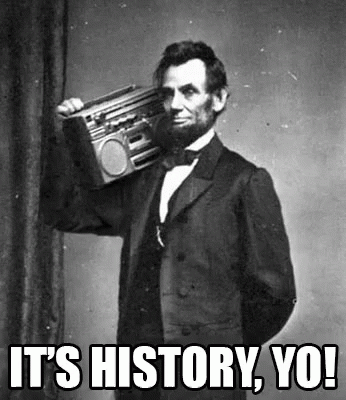
4. Name one previous pandemic caused by animal consumption and agriculture. (History repeats itself.)
History tends to repeat itself. That isn’t super literal. This means certain circumstances tend to come into play over and over again. In other words, if this logic is valid that animal agriculture and consumption is the reason behind COVID-19’s existence, we would see many more of these zoonotic pandemics in the past, present, and future.
The main thing that I agree with the opposing argument is that nonhumans have spread some severe diseases to humans. Some include swine flu, avian flu, and mad cow disease, and since this list is vast, you can figure out more about that here.
At the same time, how many times has the world been at a standstill due to a zoonotic disease? The 2020 Summer Olympics got postponed. Copious schools finished their school year online, and now, we have to practice social distancing and make more people work online.
The point is that this is the first time in 100 years a zoonotic disease has gotten so out of control that most of the world had to shut down to prevent extensive disease spread. That does not mean something like this won’t happen again. Still, for the time being, we don’t have that many diseases on record that have had this huge of a spread before the existence of more modern-day medical practices, i.e., Florence Nightingale’s emphasis on hygiene, Louis Pasteur’s germ theory, and Edward Jenner created the first vaccination. If you disagree, please correct me by commenting below.
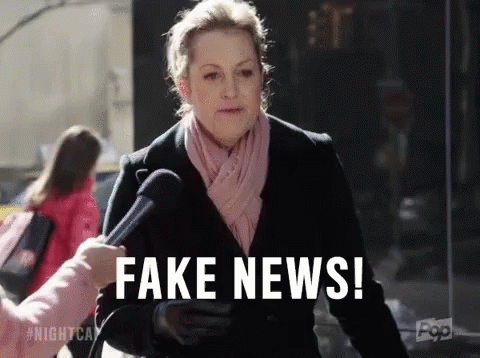
5. Associating COVID-19 and animal consumption is mere propaganda instead of factual.
The simple definition of propaganda is saying something super simple many times to convince people to believe in it without any objective evidence to back it up. Since I’m not explicitly calling anyone out in this blog post, I’ll explain what I’ve been seeing on social media for what seems like forever.
I’ve seen pictures on Pinterest and Facebook captioning things like, “COVID-19 wouldn’t exist if everyone were vegan.” Additionally, on the vegan Facebook group I used to be a part of, a good chunk of the members started majorly condemning non-vegans and their animal-eating habits and how they were the reason the COVID-19 pandemic existed.
After seeing too much of that negative commentary, I left that Facebook group because I could not support many members’ rhetoric of hatred. I could not stand being a part of a group where I would be recommended to euthanize Edward because it would save more animals’ lives if he could not be a vegan cat with his digestive issues.
The worst part about many of the members’ posts was they used Livekindly as their only source to back up any logic they posted on this group. There’s nothing wrong with using this source. Rather, Livekindly and PETA shouldn’t be the only sources that vegans use to back up their logic, and sadly, I don’t get how that will change unless people like me criticize their lack of finding more resources to support their statements.
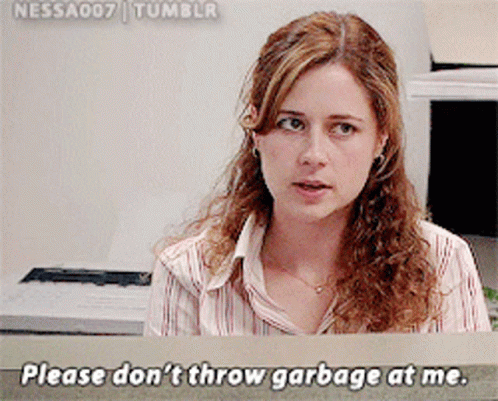
6. Hate-ridden logic is too biased to be the truth.
When people base logic on hatred, it tends to be too biased to be true. People’s minds are too clouded with their biases to judge a situation clearly.
Let’s look at this with as open of a mind as possible. COVID-19 is a zoonotic disease; some zoonotic diseases come from animal agriculture and/or consumption. A high amount of evidence suggests that COVID-19 came from a Chinese wet market. Wet markets keep so many nonhumans locked up until they are killed.
Yes, vegans see factory farming as horrible, but that does not make it okay to use the tiniest sliver of similarity to intertwine concepts that don’t correlate. Was factory farming involved with this wet market? No. Are animal agriculture and wet markets related? Yes and no, some farm animals, like chickens, can be sold there, but the word “wet” evokes how many animals live in the water (i.e., fish).
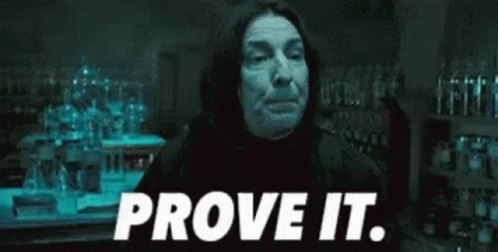
7. There is no evidence proving that COVID-19 spreads through food consumption, let alone animal consumption.
What a good chunk of food-derived diseases have in common is you get the disease from eating food. Some examples include salmonella, E. coli, and cholera. Some are some form of food poisoning, while others come from chemicals.
If COVID-19 is really from animal agriculture and consumption, it would be evident by now. We all have to eat to live, and there are so many types of diets and foods out there that any connection between food consumption and COVID-19 would have been found by now. For the time being, health experts claim that there is no evidence proving that COVID-19 can spread through food consumption, and with all of the research they do to prove their logic is accurate, we should take their word for it and not blame food consumption for causing any COVID-19 cases.
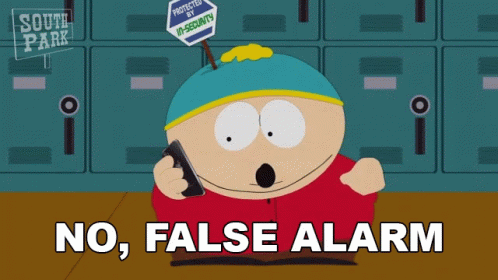
8. This is neither the first nor the last time that the vegan community has asserted such outlandish things without having evidence to support its accusations against animal consumption.
People are entitled to their own opinion, even extremists. The problem is being super extreme with most people is it isn’t productive. For example, if I posed nude in photos claiming I should be walking around in public naked all day over wearing fur, most would think I’m messed up. Or if I went to your front door with a megaphone and yelled at you for a long time about animal rights, you would call the cops on me for trespassing and harassment.
These examples aren’t random things I brainstormed; these are drastic things that extremist animal rights groups are doing to get people’s attention. PETA was responsible until recently for getting celebrities to pose nude in photos for animal rights. At the same time, Stop Huntingdon Animal Cruelty tended to be the overly assertive protestors banging on people’s doors to tell people the truth about an enormous animal lab.
These extremist groups contain some of the most extensive support and spread of this vegan debate that COVID-19 is from animal agriculture and consumption. When these groups tend to go to great lengths to get others to believe in the vegan cause, how should we take their claims about anything seriously?
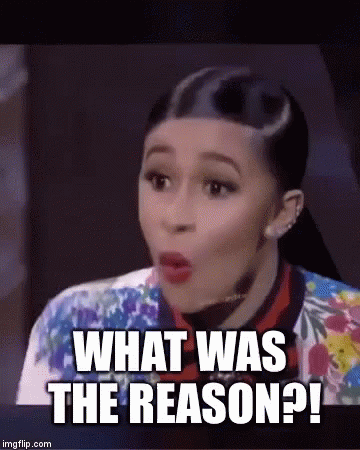
9. People tend to want a reason behind everything, and this logic gets clouded by their perception (confirmation bias).
Earlier, I talked about another type of clouding of perception, which was through hatred misconstruing information. Another is confirmation bias. This means you interpret new information in a way that enforces your current belief system.
If you want more information on how humans tend to want a reason behind everything, watch some videos or read something on bad things happening to good people. The question of why usually comes up somewhere in there. We aren’t almighty, so we don’t have all the knowledge and experiences necessary to know everything. Thus, we must use whatever information we know and any other logic we acquire through research, other perspectives, and more to perceive the world and answer the whys in our lives.
Concerning veganism, many vegans and non-vegans out there firmly believe that animal agriculture is inhumane and figure out ways to combat it. This ranges from people only hunting for food to others protesting animal rights.
The main things we know about COVID-19 that aren’t disputable are COVID-19 is a pandemic caused by nonhumans (animals). There are debates on which species hosted COVID-19, but that did not stop the following confirmation bias from occurring in the vegan community.
Animal welfare (using nonhumans for humans’ benefit) has caused many deaths, and animal agriculture is one of the primary ways that nonhumans die at the hands of humans. For example, PETA pointed out its pandemic warning that meat markets are horrible because COVID-19 started in a live meat market. The rhetoric of that video expresses COVID-19 originated from a live meat market and thus demonstrates the horrors of eating nonhumans.
The confirmation bias is COVID-19 comes from animal agriculture and consumption since it is a zoonotic disease first discovered in a live meat market. As far as I can find, this logic wasn’t based on evidence. Instead, this COVID-19 origin story came from people and organizations that don’t have the scientific, health, and epidemiological backgrounds to prove this logic is valid. The question is why some people believe in logic confirming their biases instead of what our experts have researched and discovered about COVID-19.

10. COVID-19 is airborne, not foodborne.
One thing that about everyone agrees on is that COVID-19 is an airborne virus instead of a foodborne one. That means I would get COVID-19 from germs in the air instead of in my food. That means there is no way that I would ever contract COVID-19 from animal consumption.
If you aren’t so convinced about this logic, here are simple ways that societies across the world have shown that COVID-19 is an airborne disease instead of a foodborne one:
- Wearing masks lessens the spread of COVID-19.
- We practice social distancing now.
- We’re not recalling any food because it’s harming us.
- We’ve canceled so many events and temporarily closed businesses.
In short, there would be no point in doing any of these precautions if this was a foodborne disease. Instead, these practices are done to prevent the spread of an airborne disease.
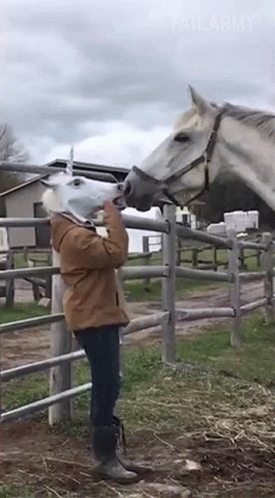
11. Animal agriculture and wild game are entirely different.
One well-known theory about COVID-19’s origins is that it came from a wild animal held at a Chinese wet market because there were many cases at the beginning of the outbreak. Let me remind you that the emphasis in the previous sentence was COVID-19 came from a wild animal, not from any animals used in animal agriculture (i.e., cows, pigs, and chickens).
Farm animals are usually raised in enclosed spaces, fattened up, and end their lives way earlier than their life expectancies due to animal welfare. For the grand majority, their exposure to the outside world is limited to the beginning and end of their lives when they are brought to their farms and then later to the slaughterhouse. Their diet is rigorous to whatever feed, water, and antibiotics the farmers give them, and the only exposure these animals have to others is pretty much with their species and humans.
Meanwhile, animals considered wild game in these wet markets can be anything not defined as livestock or pets, like badgers and bats. They can live anywhere and be exposed to anyone and anything that is located outside. Wild animals have no humans controlling what they eat before getting caught and soon eaten by interested buyers, so they can consume as much poop, garbage, chemicals, and anything else as they want without anyone stopping them.
In the United States, this would be like if I caught a raccoon in a trap in the woods, brought it to an animal auction, and sold it to the highest bidder for some fresh meat. I point out that these wet markets with wild game sold at them aren’t regulated like animal agriculture. In other words, the likelihood that farm animals came in contact with SARS that would become COVID-19 was very slim because of their limited exposure to the world. In contrast, the chance that a wild animal got exposed to and spread this virus was huge due to their constant exposure to others, so why are people blaming this virus on animal agriculture when it had nothing to do with the emergence of COVID-19?

12. This pandemic could be a coincidence (scapegoat).
Even though there are many theories behind where COVID-19 came from, like animal agriculture and consumption, I have not heard much about how this pandemic could be a coincidence. I have no idea which COVID-19 theory is correct, and all of them probably have faults in their logic.
Many things happen in life because they occur, and there was no way anyone could have prevented this pandemic from happening. Even if we predicted something like this would happen, which many people did, there was no way we could have known which species would cause the next outbreak due to the variety of zoonotic diseases out there.
Instead of wasting our time finding scapegoats, we should do our best to stop the spread and find a cure for COVID-19.
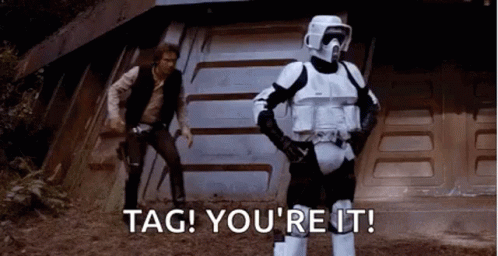
13. Just because there are outbreaks of COVID-19 in meat-packing plants, that does not mean animal agriculture and consumption are the origins of COVID-19.
I’m pretty familiar with meat-packing plants since I live in a state with many of them. These workers aren’t much different from everybody else. They have occupations that promote animal welfare (the usage of animals for humans’ benefit).
The reason why COVID-19 has heavily impacted these meat packing plants is due to their crowded nature. The more crowded your surroundings are, the more susceptible you are to airborne diseases like COVID-19. To make things worse, many non-vegans have been stocking up on meat, thus increasing its demand, while numerous vegans have pointed their fingers at these meat packing plants.
Now, we should try our best to get along and remember occupations like livestock farmers and meat packers exist because of the demand for meat, not because these individuals are horrible and ruthless.
Conclusion
In short, there is a lot of misinformation out there about the coronavirus and where it all started. One theory, or conspiracy, depending on your logic, is the coronavirus (COVID-19) came from animal agriculture and consumption. Some of the logic behind this misinformation is that since there is a decent amount of evidence proving that COVID-19 came from a wet market, then any sort of animal consumption has some sort of fault in making this pandemic exist.
This information was made by passionate vegans who took their logic and biases too far. Just because a disease is zoonotic, that does not mean it was caused by farm animals or factory farming. Ultimately, we cannot believe in this logic because it was created by people who do not have the health, epidemiology, science, or any other field of expertise that can prove that animal agriculture and consumption made COVID-19 exist. Instead, we need to trust that the experts know what they are talking about, instead of spreading misinformation.
If you want to discuss more about COVID-19 and the logic behind its origin being related to animal agriculture and consumption, please comment below. Here are some talking points to start with.
- Have you ever heard of this logic of the cause of COVID-19 being from animal agriculture and consumption prior to reading this blog post?
- As mentioned in this blog post, I do not believe that COVID-19 was caused by animal agriculture and/or animal consumption. Where do you think this disease came from, and what evidence do you have to support your claims?
- How have you been impacted by COVID-19?
- Has COVID-19 changed the way you look at food and/or eat? If so, how and why?

